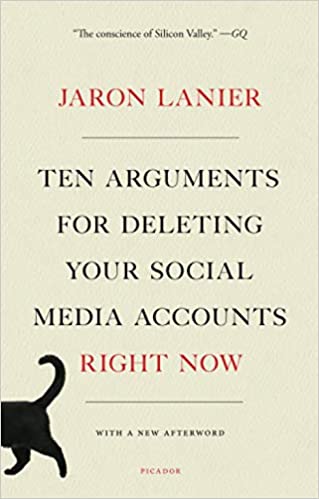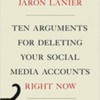The Netflix documentary The Social Dilemma argues that the social media platforms we use to stay connected are making us miserable, disconnected, and potentially having a much wider impact on the socio-political landscape.
The documentary received both praise for its engaging content but also received its fair share of criticism for perhaps being, at times, unbalanced in its views (and for not including individuals who have been campaigning for humane and ethical technology long before the documentary came along.)
Some GGTU team members watched the documentary earlier this year and got together to discuss our thoughts on it (always a blast to get together virtually to discuss interesting topics!)
As someone interested in digital wellbeing and tech use, I've been reading a lot about this topic. I recently recommended 'The Shallows: What the internet is doing to our brains' in a previous post and last week I finished reading 'Ten Arguments for Deleting Your Social Media Accounts Right Now' by Jaron Lanier who is one of the Silicon Valley experts in The Social Dilemma.

This book is pretty short, very informative and Lanier has a great sense of humour, which always helps when discussing a serious topic like how big tech companies are using and exploiting our data! It was pretty eye-opening even though somewhere in the back of my mind I was well aware of how sophisticated and closely guarded these algorithms are.
I'm not necessarily anti-social media, having grown up most of my adult life with the presence of Facebook, but the book prompted me to delete my remaining social media accounts (Facebook and Instagram). It's been thirty days and I can honestly say the impact on my focus and mood has been really noticeable. I've done stints before off social media before, but after over a year of intense screentime and doom-scrolling perhaps I needed it more than previous times. I'd highly recommend the book to anyone looking to try a social media pause/exit, while it may not provide the 'how' it certainly gives great reasons for 'why'.
I'm curious to know how you might handle your own tech use habits? Do you think in the future that social media platforms will see users leaving as we become wiser to some of the negative impacts they can cause?
